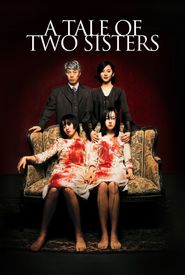Kim Ji-woon, a renowned figure in the world of cinema, was born in the vibrant city of Seoul, South Korea. Prior to establishing himself as a talented director, Kim began his career as an actor, taking on various roles and gaining valuable experience in the process.
As his passion for storytelling grew, Kim transitioned to the world of stage direction, helming productions such as "Hot Sea" in 1994 and "Movie, Movie" in 1995. His success on stage led him to script his first feature film, "Wonderful Seasons," which premiered in 1997 and went on to win the Best Screenplay award at Korea's prestigious Premier Scenario contest.
Kim's subsequent project, "The Quiet Family," marked not only his directorial debut but also the inspiration for Takashi Miike's remake, "The Happiness of the Katakuris," in 2001. The film's official selection at the Berlin International Film Festival and subsequent Best Film award at the Fantasport Film Festival cemented Kim's reputation as a talented and innovative director.
The massive success of his next film, "The Foul King," in 2000, solidified Kim's position as a household name in Korea, with the film maintaining the number one spot at the box office for over six months and attracting over two million admissions worldwide. The film's international appeal was further solidified by its inclusion in numerous film festivals.
Kim's subsequent projects, including the short film "Coming Out" in 2000 and his segment in the anthology film "Three" in 2002, alongside contributions from Peter Ho-Sun Chan and Nonzee Nimibutr, showcased his versatility and range as a director.
In 2003, Kim released his critically acclaimed horror film, "A Tale of Two Sisters," which has since become a modern classic in the horror genre. Kim's affinity for film-noir is evident in many of his films, often blending elements of noir with black comedy to create unique and captivating cinematic experiences.
One of Kim's most notable films, "A Bittersweet Life," released in 2005, is a masterclass in film-noir, expertly weaving together elements of gangster thrillers and noir to create a cinematic masterpiece. Throughout his career, Kim Ji-woon has consistently pushed the boundaries of Korean cinema, earning him a reputation as one of the country's most innovative and respected directors.
































